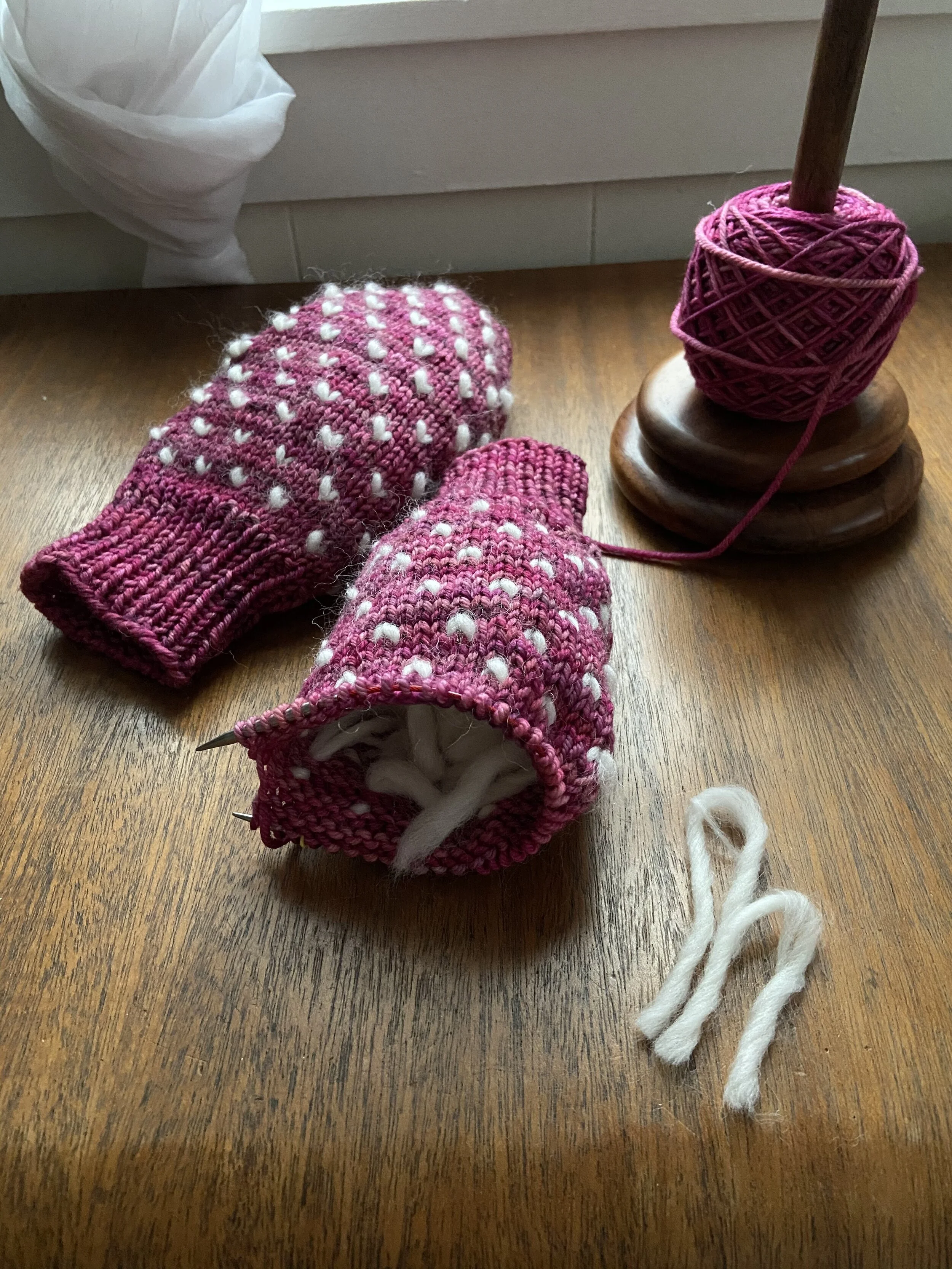No one has thought of it
All over the world, people have solved the problem of how to build houses on the sides of cliffs. Here’s how they made it work in St. John’s, Newfoundland and Labrador. (Image by Pexels)
I recently made my first pair of thrummed mittens.
Thrums are bits of unspun wool that are knitted into a garment to provide extra insulation in the form of a nice fluffy lining. It is unclear where this technique first developed — most sources point to the Canadian province of Newfoundland and Labrador, known over the centuries for its active fishing industry (and cold climate).
I grew up in a coastal village much farther south, in Maine, where I frequently experienced cold hands and feet. I never knew about thrummed mittens. However, it makes perfect sense that people had already figured out how to solve those problems. If I had understood this when I was younger and sought out existing solutions, I might have been a lot warmer.
The mittens in progress.
In fact, it’s been an important aspect of my growth to learn to clearly identify problems in order to solve them. As a kid, I would just accept less-than-ideal routines, materials, and circumstances, not realizing that better resources existed. These days, I put a lot of energy into researching better ways of doing things and finding better materials — and if they don’t exist, I develop my own.
There are two pitfalls that I have to look out for in this pursuit of effectiveness, however. The first is that I might spend too much time and effort looking to upgrade gear, rearrange the office, find better software, and so on, thus neglecting the work itself.
The second is the concern that I might put a lot of energy into coming up with something novel that has either been done before (and I would have found it if I had been more persistent in my search) or has never been done because it’s a really dumb idea.
I’ll tell ya, it’s surreal to spend many hours looking for something basic (an ankle-length, long-sleeved dress (also for warmth); a short, cushioned stool without wheels that rocks and rotates; a set of resonator bells for children where all the bells are the same color; a book that explains Algebra using simple arithmetic and conversational English without a bunch of cartoon pictures) only to find nothing…or worse, find only the cheap, scary dregs of Amazon. It’s easy to conclude that the reason you’re not finding what you want is that you are a weirdo. But there’s still the possibility that you might have happened upon an opportunity.
It’s in this spirit that I’m writing my own piano book even though countless piano books exist. After trying so many, I’ve even given up on studying the new ones to see if they will do what I want them to do. But I’m not going to simply accept the problems I’ve spent my career studying. Whether anyone wants it or not, I’m going to create a solution, in my own way.
My book will teach students to play by ear right from the start. They’ll learn to compose and improvise. They’ll learn to read music, too, but the notes and concepts will be taught in a radically different order from the usual method books, based on what has worked for me over the years.
This could be highly useful for a new generation of piano teachers, or it could serve that purpose for exactly one (moi). Either way, the time has come to stop hiding behind the worry that it might not work (or on the other hand, that it might be reinventing the wheel) and make the thing.
Ultimately, it doesn’t matter whether no one has thought of this idea before or it’s already been done. It doesn’t matter whether it’s foolish or clever. Just as with the mittens, there’s a lot to be gained from making my own version, learning from it, and iterating accordingly. I might come up with something valuable only to me, but I might also help someone else on their path.
The risk is that I might take a lot of time for nothing. My work might be superfluous. If anyone needed what I have to offer, I’d already know, right? But no, that’s not really the way it works. The world makes room for new things once someone brings them into being. We tend to want things after we know that they exist. After we see an elegant solution to a problem we hadn’t even identified but now can’t ignore.
Either way, the experience of making something is intrinsically valuable, even if that thing ends up being refrigerator art, loved only by its creator in the moment. I can’t know how it’s going to turn out until I try.
As they say, “here goes nothing.” Time to make something.
*
What about you? Are you sitting on a creative project? What will it take to get you to give it a shot? What’s the potential downside? What’s the potential upside?







